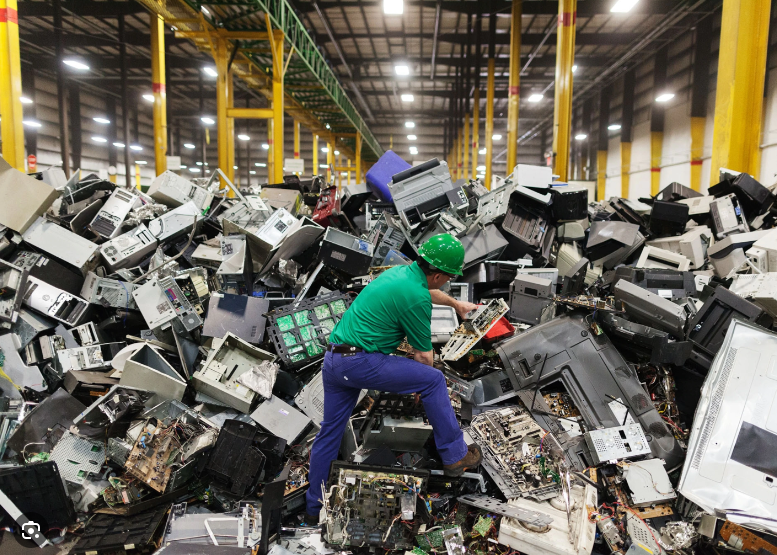
Technology has become indispensable. The prevalence of portable electronic gadgets, such as cell phones, laptops, and tablets, has made us reliant on them. While technology has undoubtedly improved our lives, it has also resulted in a hazardous by-product known as e-waste.
Improper disposal of electronic waste could have grave ramifications, so it’s vital to learn what happens when you throw e-waste in the garbage.
Chemicals in e-waste Can Have Harmful Effects
Electronic waste contains several chemicals—lead, mercury, cadmium, and arsenic—that are detrimental to human health and the environment. Exposure to lead, for instance, can cause neurological disorders, while mercury can harm the kidneys and nervous system.
Cadmium, a known carcinogen, can induce lung and prostate cancer, while arsenic exposure can lead to skin, lung, and bladder cancer. When we discard electronics in regular waste streams, toxic chemicals can leach into the soil, contaminate water sources, and enter the food chain. This endangers wildlife and humans. Fortunately, using refurbished devices can reduce e-waste by keeping gadgets out of landfills.
Landfills Are Not Suitable for Electronic Devices
Landfills and electronic devices are like oil and water—they don’t mix, no matter how much you stir. The improper disposal of e-waste squanders an opportunity for recycling valuable metals, such as gold, silver, and copper.
By minimizing the demand for mining these metals and reducing the associated environmental impact of extraction, the detractors of e-waste disposal in landfills highlight the need for e-waste management strategies.
You Could Receive Fines for Improper Disposal
Throwing e-waste in regular trash can incur significant penalties, depending on your location. In many cities and states across the US, discarding e-waste in the garbage is illegal due to its hazardous composition. For example, in California, people can face a fine of up to $25,000 per electronic item disposed of improperly.
Businesses, too, can bear hefty fines and may suffer additional consequences, such as revocation of licenses. Even if your region doesn’t have e-waste management laws, general environmental regulations can apply. Violations can result in penalties ranging from hefty fines to imprisonment. Understand and comply with local e-waste disposal regulations to avoid legal penalties and, more importantly, protect the environment and public health.
Educating Yourself
Educating yourself about e-waste management is crucial for several reasons. Firstly, it enables you to understand the environmental and health hazards associated with improper e-waste disposal, motivating you to dispose of electronic waste responsibly.
Secondly, this knowledge can help you identify and use safe disposal channels, such as certified recycling centers. Additionally, understanding how e-waste management can prevent you from unknowingly committing illegal activities, like discarding e-waste in regular trash.
Education about e-waste management can also inspire innovative ideas for reducing, reusing, and recycling waste, contributing to the larger goal of sustainable living. Comprehensive education is an essential tool for effective e-waste management.
After learning what happens when you throw e-waste in the garbage, we hope you’ll think twice before throwing away obsolete gadgets with your everyday trash. Awareness and accountability for safe e-waste channels are critical to the success of sustainable waste management. Play your part in taking care of the Earth by disposing of electronic waste responsibly.